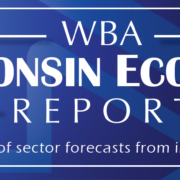Passwords: Ensuring Secure Data
How you can be your own best first line of defense against hackers
By Rob Foxx, CCBTO
Depending on how old you are, you will have a different perspective on passwords. The more seasoned professionals would have come in at a time when a minimum of six characters, no capital letters, numbers, or symbols was a commonplace practice. In comparison, passwords today usually consist of eight characters — at least one being one upper case — a number, and a symbol.
With a good computer and access to a vulnerable system, even now those passwords could be cracked by a common tool to brute force into the system in less than six hours. While our technology continues to evolve, unfortunately, so too do the bad actors and threats to our data security.
Digital Security Threats
While some threats are technology based, a consistent number of threats to our passwords are not. Saving a password to a browser is an invitation for trouble. Once you walk away from an unlocked computer, it would not take much effort to log in or even change your credential without your knowledge. There are many tools that can copy these passwords quickly and with very little expertise.
Additionally, those who reuse passwords or only slightly change them is a direct invite to bad actors. If your password was compromised on a common website and associated with your email, someone has that information, and there is a good chance they are going to try it elsewhere. For example, changing a password from Carl!123 to Carl@123 is also risky as a list of passwords associated with users’ names fed into a computer could guess this in seconds rather than hours.
Many people write their passwords down and tape it to a monitor. The inside of a desk drawer, or under the keyboard or mousepad are not much safer a hiding spot.
As many of us are aware, sharing passwords is a bad idea from an accountability point of view. Once someone else has it, you can no longer secure it from being written down or re-shared.
Be aware if your passwords or accounts have been breached in the past. The website have ibeenpwned.com is a staple for those in the information security field. This allows you to check if both passwords and email accounts have been used or discovered in past breaches.
Additional Protective Steps
Like many threats, the best answer is in the hands of the people most at risk. With a little education and a few resources, you could be on your way to making yourself an unappealing target.
- Multi-Factor Authentication
Multi-Factor Authentication (MFA) is the latest and greatest in terms of locking an account if available. It requires a token or application on your phone to give a random code that matches up to a login service. Using MFA makes unauthorized access very difficult.
- “Real” Passwords
The NIST (National Institute of Standards and Technology) in their 800-63 publication points out that complexity does not matter to a computer. It only makes it harder for users to remember. Password length makes it exponentially more difficult for a computer to guess or break a password that has not been breached. A 15-character password with all lowercase letters would take a computer an estimated 12 million years to breach. Passwords can be as simple as three unrelated words or based on items found on your desk — coffeelampmouse is a good example. The internet is filled with random password generators, but they are only of limited use as the passwords they generate are impossible to remember.
- Password Vaults
Password vaults are very reliable and inexpensive or free. They can make and save passwords for you requiring a single password to access all your other passwords. Additionally, they can generate passwords for you. This removes the requirement to come up with something new every time you make a password. Some vaults are cloud based, and for those who are looking for a business version or an entirely offline vault, these are also available.
Armed with the knowledge of the problem and the tools presented you can use them to be your own best first line of defense against people trying to take over your digital life. You would not choose a lawyer, doctor, or bank officer who barely meets minimum requirements to do something important, so do not skimp on the passwords that secure your data with a minimum requirement either. If you have questions, feel free to ask your local IT or information security professional — they are generally very happy to help people safeguard themselves, as it makes their lives easier as well!
Foxx is director – infosec and IT audit services for FIPCO, a WBA Gold Associate Member.









